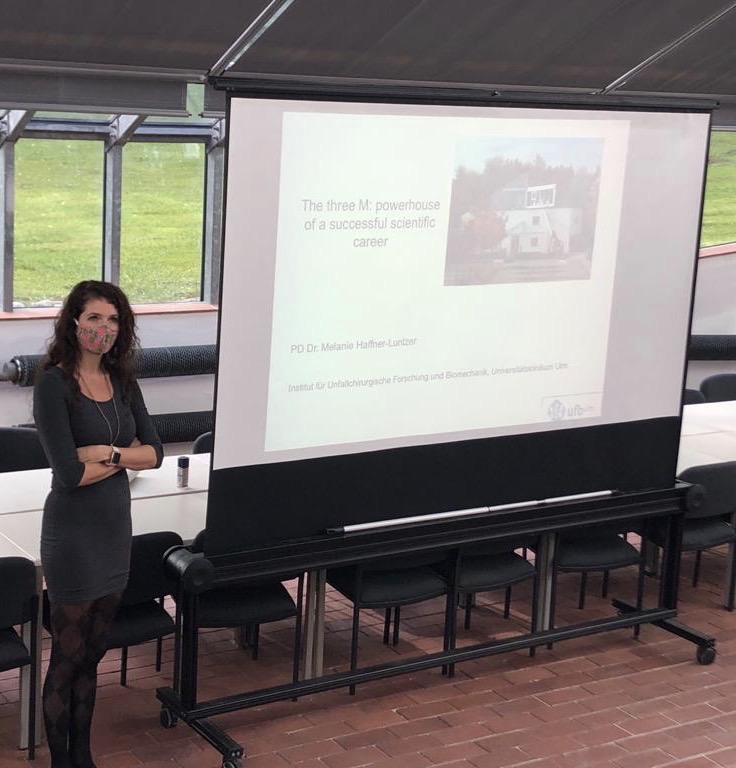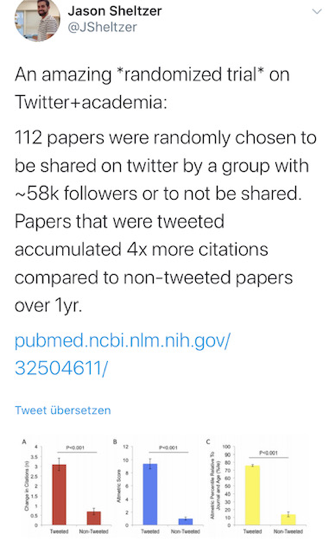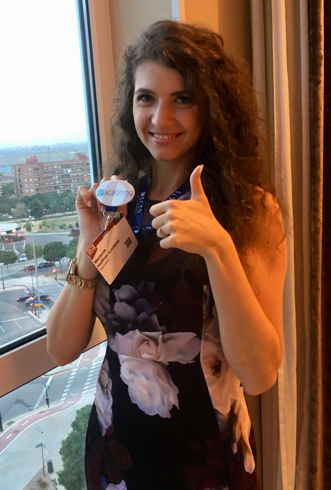As requested from @RyanET & @jboerckel here is my thread about my recent conference talk:
"The three M& #39;s: powerhouse of a successful scientific career"
What& #39;s most important for a scientific career? Maybe everyone would agree on publications, grants, awards.
But... 1/x
"The three M& #39;s: powerhouse of a successful scientific career"
What& #39;s most important for a scientific career? Maybe everyone would agree on publications, grants, awards.
But... 1/x
But how to get those? Of course, this highly depends on your research results, which depends on (hard) work and a small amount of luck.
But there are strategies to improve your publication output besides this:
- know the "right" journals and editors
- know potential reviewers
But there are strategies to improve your publication output besides this:
- know the "right" journals and editors
- know potential reviewers
- collaborate with other researchers for co-authorships
You see, all of these strategies need "Networking"
Same is somehow true for receiving awards:
You see, all of these strategies need "Networking"
Same is somehow true for receiving awards:
You can only get an award when you know about it and apply for it. So most important advice: APPLY
What’s important for a successful award application:
- motivation letter
- letter of support
- being a member at the respective scientific society, people should know your name
What’s important for a successful award application:
- motivation letter
- letter of support
- being a member at the respective scientific society, people should know your name
How to find out about awards?
- being a member at scientific societies in your research area (receiving newsletters)
- searching for awards online
- social media
- talking with colleagues, mentors
This brings me to the first M:
MENTORS
- being a member at scientific societies in your research area (receiving newsletters)
- searching for awards online
- social media
- talking with colleagues, mentors
This brings me to the first M:
MENTORS
“you can only be what you see”
- mentors can be your direct supervisors AND also other scientists/clinicians
- good scientists are not always good mentors
- tasks of a good mentor:
--> advice you to scientific, career and life-related questions
- mentors can be your direct supervisors AND also other scientists/clinicians
- good scientists are not always good mentors
- tasks of a good mentor:
--> advice you to scientific, career and life-related questions
- introduce you to other scientists (“networking”)
- inspire you
- write letters of support for you
- proof-read your documents (letter of motivation, CV, grant application, etc.)
- inspire you
- write letters of support for you
- proof-read your documents (letter of motivation, CV, grant application, etc.)
What does a good mentor NOT do?
- make your decisions for you
- form you to a “new-version of the mentor”
- always provide "nice" feedback, not constructive advice
How to find a good mentor?
--> scientific societies, networking
Have a look at @AcademyEcts and @ORSsociety
- make your decisions for you
- form you to a “new-version of the mentor”
- always provide "nice" feedback, not constructive advice
How to find a good mentor?
--> scientific societies, networking
Have a look at @AcademyEcts and @ORSsociety
The second M: MEMBERSHIP (in scientific societies)
benefits of (inactive) membership:
- eligibility for awards
- newsletters (awards, grants, events)
- reduced fees for conferences, paper submissions etc.
benefits of (inactive) membership:
- eligibility for awards
- newsletters (awards, grants, events)
- reduced fees for conferences, paper submissions etc.
benefits of active membership (participating in committees, board of directors, etc.)
- networking, get to know important people (reviewer, editor)
- people will know your name --> get invitations for papers, moderations, talks
- learn how a scientific society works
- networking, get to know important people (reviewer, editor)
- people will know your name --> get invitations for papers, moderations, talks
- learn how a scientific society works
How many memberships?
inactive: as much as you can afford
active: concentrate on max. 3 societies (at least 1 should be international)
When to start with being active?
The earlier the better! But don’t forget that& #39;s lots of work.
Have a look at @MuSkITYR & join us for FREE
inactive: as much as you can afford
active: concentrate on max. 3 societies (at least 1 should be international)
When to start with being active?
The earlier the better! But don’t forget that& #39;s lots of work.
Have a look at @MuSkITYR & join us for FREE
You see, the third M: MONEY
Money is important…
… directly for your research
… indirectly for your research and career (childcare etc.)
How to get money?
- grants
- awards, travel awards
- special programs (gender equality funds, support during pregnancy & childcare)
Money is important…
… directly for your research
… indirectly for your research and career (childcare etc.)
How to get money?
- grants
- awards, travel awards
- special programs (gender equality funds, support during pregnancy & childcare)
Most important advice regarding money and how to find special funding programs (esp. for women, underrep. minorities):
Inform yourself (online), ask your peers, ask your mentors, watch out for newsletter!
This brings me to SURPRISE the fourth M: (Social) MEDIA
Inform yourself (online), ask your peers, ask your mentors, watch out for newsletter!
This brings me to SURPRISE the fourth M: (Social) MEDIA
And I want to talk a little bit about Twitter here:
The twitter community can offer:
- Networking, collaborations, connect with peers (especially in COVID times)
- News and publications updates (faster than pubmed)
- Grant and award offers
- Education
- Advocacy
The twitter community can offer:
- Networking, collaborations, connect with peers (especially in COVID times)
- News and publications updates (faster than pubmed)
- Grant and award offers
- Education
- Advocacy
But I don& #39;t need to talk about why you should use Twitter as a researcher/clinical scientist too much here, because YOU already are on Twitter ;)
How to be successful on twitter?
This would be another thread ;)
This would be another thread ;)
Final conclusions:
- find (diverse) mentors
- do networking via conferences, active membership, social media
- apply for awards to get money
- search for special funding sources (gender equality etc.)
AND most important:
have fun with what you are doing!
@OpenAcademics
- find (diverse) mentors
- do networking via conferences, active membership, social media
- apply for awards to get money
- search for special funding sources (gender equality etc.)
AND most important:
have fun with what you are doing!
@OpenAcademics

 Read on Twitter
Read on Twitter




